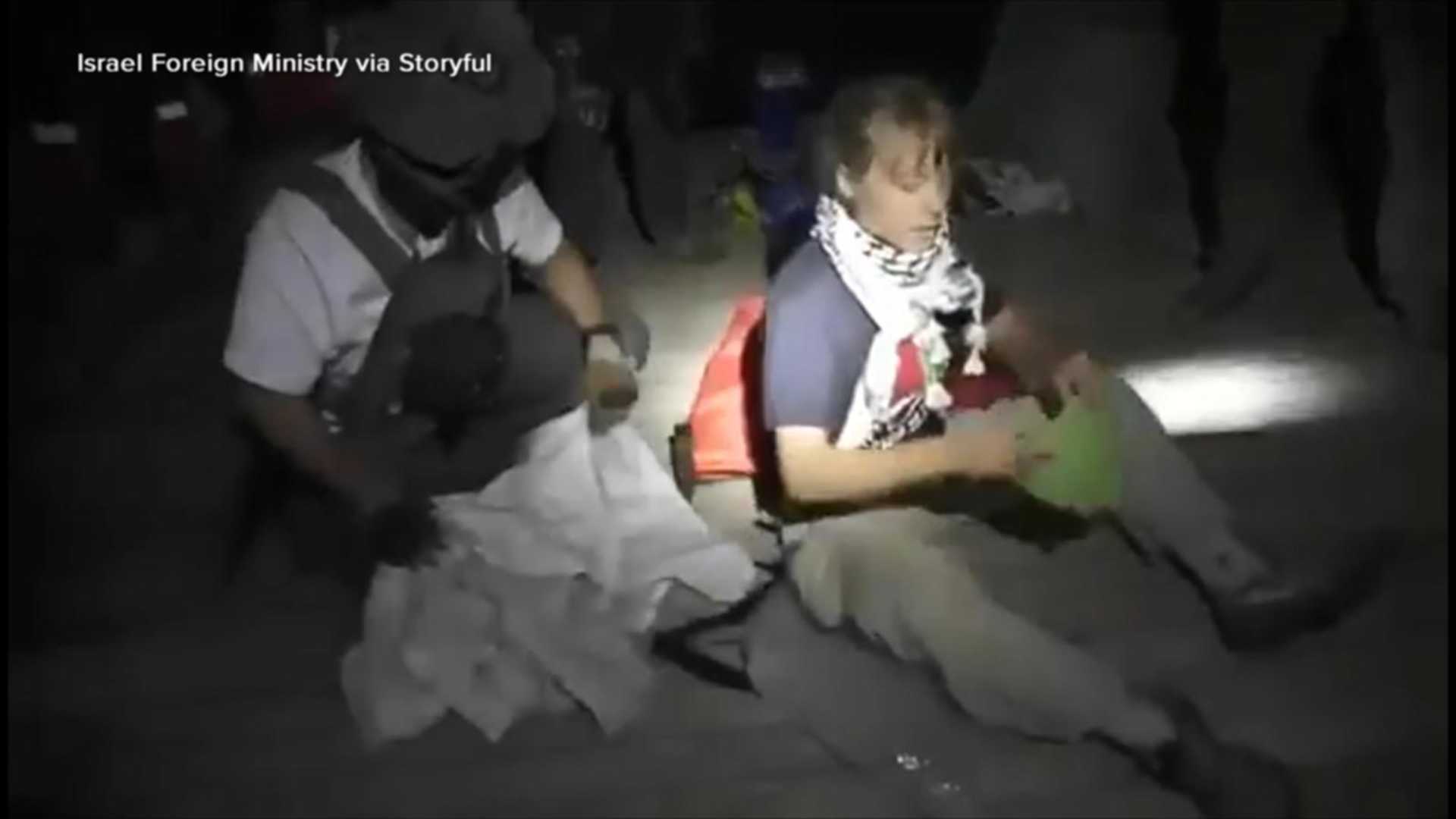News
Greta Thunberg Exposes Harsh Treatment in Israeli Custody After Gaza Flotilla

ANKARA, Turkey – Prominent climate activist Greta Thunberg reported experiencing harsh conditions while detained in Israel following her participation in an aid flotilla to Gaza. Swedish officials revealed her claims of mistreatment on October 4, 2025.
Documents seen by the Guardian indicate that Thunberg informed the Swedish foreign ministry that she faced dehydration due to insufficient food and water during her detention. An email from the ministry confirmed that officials met with her in custody, where she also reported skin rashes that she suspected were caused by bedbugs.
“She spoke about harsh treatment and mentioned being forced to sit on hard surfaces for long periods,” the email stated. Additionally, another detainee told embassy officials that Thunberg was compelled to hold flags while pictures were taken, raising concerns about whether these images were distributed.
Israeli forces detained over 470 activists, including Thunberg, when they intercepted the Global Sumud Flotilla, which aimed to deliver humanitarian aid to Gaza. Many of those arrested were held at Ketziot prison, a high-security facility in the Negev desert.
Turkish activist Ersin Çelik, who witnessed the detention, described how forces allegedly dragged Thunberg by her hair and forced her to kiss the Israeli flag. Lorenzo D’Agostino, a journalist aboard one of the boats, recounted seeing her “wrapped in the Israeli flag and paraded like a trophy.”
During the arrest, Israeli sources labeled the activists as “terrorists,” with National Security Minister Itamar Ben-Gvir asserting on video that they would be treated harshly. Activists reported incidents of verbal and physical abuse after their interception.
Adalah, an Israeli NGO, claimed that detainees’ fundamental rights were violated, citing denial of water, food, and legal representation. Thunberg’s legal team reported that during the initial hours of detention, many crew members were left with no access to proper food or water.
Thunberg’s case has drawn international condemnation, with several foreign ministers expressing concern over humanitarian treatment. The Swedish foreign ministry insisted on immediate access to clean water and food for all detainees.
In response to allegations, the Israeli Ministry of Foreign Affairs denied claims of mistreatment, asserting that all detainees received basic rights in accordance with international standards.
Colombia reacted to the incident by expelling Israel’s diplomatic representatives and suspending its free trade agreement, illustrating the broader diplomatic fallout resulting from the flotilla’s interception. The flotilla was part of ongoing efforts to challenge Israel’s blockade of Gaza amid increasing humanitarian crises.












